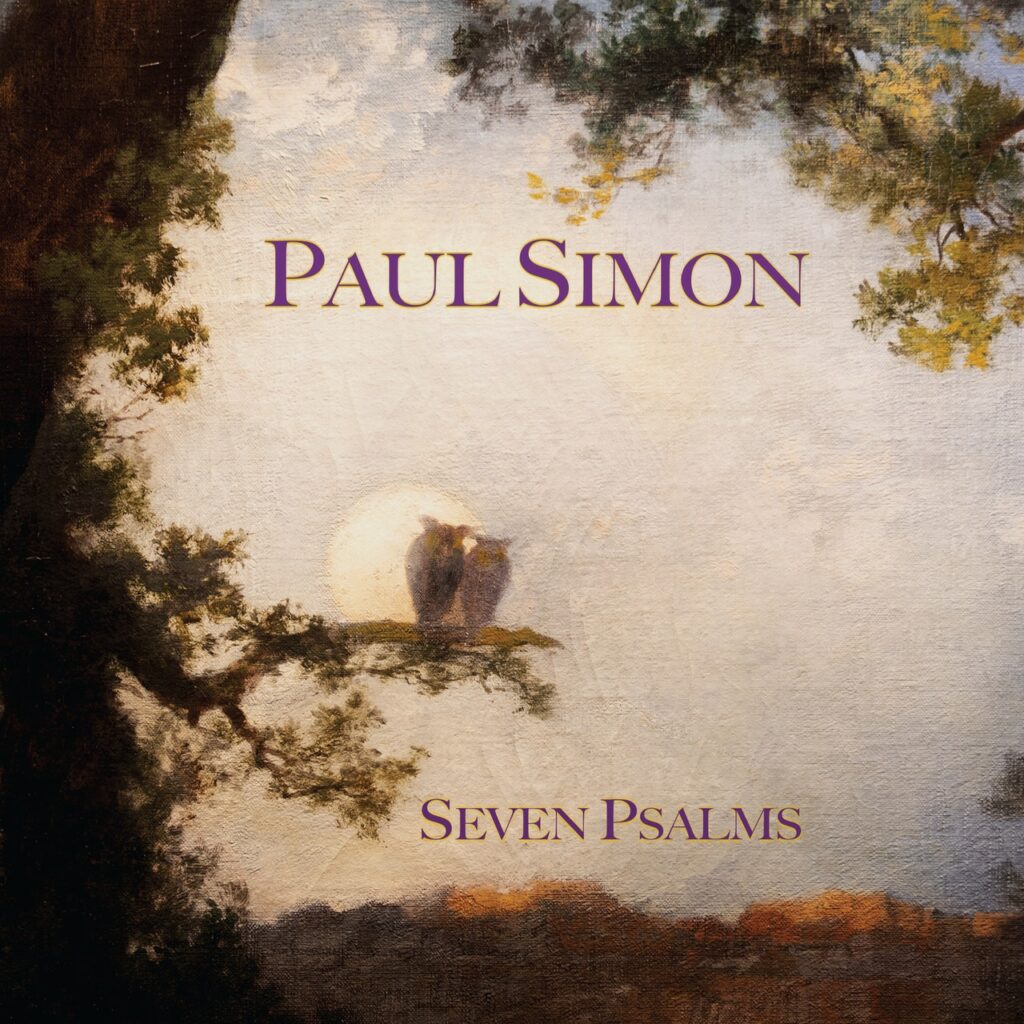If you have ever searched for the meaning of life in a pop song, you have likely turned to Paul Simon. The sacred comfort of being alone, the creeping anxiety of getting older, the haunted visitations that follow our failed relationships: For 60 years, he has explored these universal concerns in a tender, conversational voice, often accompanied by complex arrangements that suggest a busy, clattering world, already setting the stage for our next celebration or catastrophe.
On the 81-year-old’s latest record, Seven Psalms, he silences his surroundings. The quiet is arresting, almost uncanny—the sound of venturing into the backyard in the early morning after a long night of rain. For most of the project’s 33-minute runtime, it’s just Simon’s near-whisper and his acoustic guitar, fingerpicking his way through a spare, dewy landscape. His lyrics are similarly uncluttered. “I lived a life of pleasant sorrows,” he sings in one of the most memorable lines, “until the real deal came.”
The way Simon tells it, he was gearing up for retirement, having performed what was billed as his last concert, when he woke from a dream with an imperative to write something called Seven Psalms. “I thought: I’m not sure I even know what a psalm is,” he confessed. Never one to back away from a mysterious creative impulse, he studied the psalms of King David and began chipping away at an ambitious project that he is adamant listeners approach as a single composition. (On streaming services, it plays as one unbroken track, despite being separated into seven movements with distinct titles in the liner notes.)
Within the conceptual framework, Simon tries his hand at modernizing the language of King David. “The COVID virus is the Lord,” he tells us, more than once, suggesting an Old Testament understanding of the divine. Other times he aims for a more idiomatic, empathetic perspective on the trajectory of modern life. “It seems to me we’re all walking down the same road to wherever it ends,” he observes in “Trail of Volcanoes,” which extends a dreamlike narrative about refugees and hitchhikers, blended with Simon’s own autobiography.
From this vantage, Seven Psalms might initially scan as another wistful, self-referential entry in the growing canon of late-era releases from master songwriters contemplating the end of their journeys. But that characterization belies how singular, surreal, and occasionally funny Seven Psalms can be. There’s a bluesy movement titled “My Professional Opinion,” in which Simon assumes the role of the wise old poet mulling over his weighty subject matter; eventually he cracks a joke about cows and cuts through the austerity like a nervous host gathering guests from the funeral to the afterparty: “What in the world are we whispering for?”
Here is where we might expect the orchestra to come in—or, you know, the djembe or jazz band or choir. Instead we get a quick blast of harmonica and a low, grinding drone—as if a country ensemble were passing in a slow-moving truck. The effect is jarring, adding an eerie sense of dynamics, like the dreams where you try to raise your voice but can’t make a sound. With only a few instrumental accompaniments (strings, flute, an instrument called “theorbo”) and guest vocals from Edie Brickell and British a cappella group Voces8, it is easily the most solitary record Simon has made since his early solo work. The restraint is the point; just as he’s found inspiration in wide-ranging rhythms and textures from around the world, he now seems thrilled by just how much quiet he can conjure.
Simon has long been driven by a desire to challenge expectations, annotating his words or retracting them as soon as we’ve absorbed them. Often it’s for comedic effect: “All my life, I’ve been a wanderer,” he sang in 2000’s “Darling Loraine,” swiftly followed by, “Not really, I mostly lived near my parents’ home.” After so much godly imagery of endless flowing rivers and white light that eases the pain, there’s a similar twist near the end of Seven Psalms: Just before the final movement, he shifts his exaltation of the Lord from a distanced, metaphorical interpretation—the face in the atmosphere, a meal for the poorest of the poor—toward a role more suited to his actual surroundings: “The Lord is my engineer/The Lord is my record producer,” he announces with an arched eyebrow.
And with that, we’re right there with Simon in the unromantic, soundproof rooms where he has spent a great deal of his working life. “My hand’s steady/My mind’s still clear,” he tells us. “I hear the ghost songs I own/Jumpin’, jivin’, and moanin’ through a heartbroken microphone.” These lines occur in a movement called “Wait,” as in, “Wait, I’m not ready,” a lyric he sings in as fragile a delivery as he’s ever mustered. Brickell, the singer-songwriter to whom he’s been married for more than 30 years, joins to accompany him, and their voices build to a muted gospel climax around the word “amen.”
That’s where we leave him—standing beside someone he loves, completing the task set out for him, and accepting the inevitable with a prayer. Simon has referred to this record as an “argument I’m having with myself about belief or not,” and happy endings don’t come much clearer than this. But is anything ever so simple? When Brickell assures him that heaven is “beautiful… almost like home,” what does she mean by “almost”? And what about those questions of doubt he raises in “Your Forgiveness,” and the deliberating jury he imagines still pondering our fate? For every resounding major chord Simon strums around that final, elongated iteration of “amen,” there’s one that sounds a little unsteady, shakier and more unresolved. If there’s a comfort to be found in this music, or any certainty in the story that Simon feels compelled to keep telling us, it’s that the searching never ends.
All products featured on Pitchfork are independently selected by our editors. However, when you buy something through our retail links, we may earn an affiliate commission.

